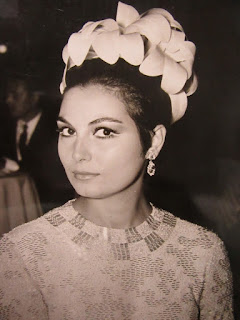Dramatic life of Italian sex goddess
 |
| Rosanna Schiaffino became a movie goddess in the mould of Sophia Loren and Gina Lollobrigida |
Schiaffino worked for some of Italian cinema’s greatest directors, but in the 1980s turned her back on the cinema world to marry the playboy and steel industry heir, Giorgio Falck, entering a relationship that descended into acrimony after she was diagnosed with breast cancer.
Born into a wealthy family, Schiaffino was encouraged in her acting ambitions by her mother, who paid for her to go to a drama school. She entered beauty contests and won the title of Miss Liguria when she was just 14.
She also took some modelling jobs and her photograph appeared in many magazines. She was spotted by the film producer Franco Cristaldi, who paired her with Marcello Mastroianni in Un ettaro di cielo (Piece of the Sky) in 1959.
Schiaffino made her name in her second film for Cristaldi, La Sfida (The Challenge), directed by Francesco Rosi, in which she gave a powerful, but sensitive performance as a Neapolitan girl, inspired by the real life character of Pupetta Maresca, a former beauty queen who became a famous Camorra figure after killing the murderer of her husband in revenge. The film won acclaim at the 1958 Venice film festival.
She won an award for her performance as Lucrezia in the film La Mandragola (The Mandrake), an adaptation of a play by Niccolò Machiavelli.
 |
| Schiaffino and Marcello Mastroianni in a scene from A Piece of the Sky |
In 1966 she married the film producer Alfredo Bini, with whom she had a daughter, Antonella. They would divorce in 1976.
After making more than 40 films, working with directors including Pier Paolo Pasolini, Roberto Rossellini and Jean-Luc Godard, Rosanna gave up acting to enjoy a new life mixing with the jet set, her activities often featuring in gossip magazines all over the world.
During the summer of 1980 in Portofino, she met Giorgio Falck, who was newly divorced, and they had a well publicised affair. They had a son, Guido, in 1981 and were married in 1982.
In 1991 she was diagnosed with breast cancer and the marriage then went into decline. They divorced after unpleasant disputes over the custody of their son and the allocation of money.
She died of the illness in 2009, aged 69, in Milan.
 |
| The maritime city of Genoa is the capital of Liguria and the sixth largest city in Italy |
Genoa, where Rosanna Schiaffino was born, is the capital city of the region of Liguria and the sixth largest city in Italy. It has earned the nickname of La Superba because of its proud history as a major port. Part of the old town was inscribed on the World Heritage List in 2006 because of the wealth of beautiful 16th century palaces there.
 |
| The picturesque fishing village of Portofino has become a draw for artists and celebrities |
The region of Liguria in northwest Italy is also known as the Italian Riviera. It runs along a section of the Mediterranean coastline between France and Tuscany and is dotted with pretty seaside villages, with houses painted in different pastel colours. The fishing village of Portofino, about an hour’s drive southeast along the coast from Genoa, has become famous for its picturesque harbour and for its associations with artists and celebrities. A novel published in 1922 is credited with making Portofino famous. The Enchanted April by Elizabeth von Arnim was inspired by the author’s stay in Portofino and was made into a film in 1991 with a cast including Joan Plowright, Miranda Richardson and Alfred Molina. The film was nominated for three Oscars.
Also on this day:
1343: Amalfi is destroyed by a tsunami
1881: The birth of Pope John XXIII
1950: The birth of writer and entertainer Giorgio Faletti
1955: The birth of choreographer and dancer Bruno Tonioli
Home










